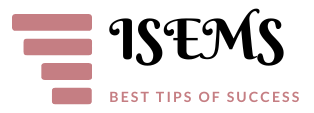What can I do to get a great mortgage? How can I find low rates I can afford? What should I know before I talk to any lenders? When do I start the process? How can I find answers to all of these questions and more? Read on for expert mortgage advice.
Save enough money to make a down payment. Lenders may accept as little as 3.5% down but try to make a larger down payment. If you put down 20% of your total mortgage, you won’t have to pay private mortgage insurance and your payments will be lower. You will also need cash to pay closing costs, application fees and other expenses.
To make your application for a mortgage fast and easy, make electronic copies of your last two pay checks, two recent bank statements, W2s, and tax information. Lenders will ask for all of this information to go with the application and having them on hand in electronic format makes it easy to supply this information.
Before applying for a mortgage, pay down your debts. Lenders use a debt to income ratio to verify that you are able to afford a mortgage. A general rule of thumb is 36 percent of your gross income should be available to pay all of your monthly expenses, including your mortgage payment.
Try shopping around for a home mortgage. When you do shop around, you need to do more than just compare interest rates. While they’re important, you need to consider closing costs, points and the different types of loans. Try getting estimates from a few banks and mortgage brokers before deciding the best combination for your situation.
Really think about the amount of house that you can really afford. Banks will give you pre-approved home mortgages if you’d like, but there may be other considerations that the bank isn’t thinking of. Do you have future education needs? Are there upcoming travel expenses? Consider these when looking at your total mortgage.
When financing a house, giving a large down payment will result in a lower mortgage rate. This is due to the fact that a big down payment will reduce your loan to value ratio. When the loan to value ratio gets lower, the interest rates become more favorable for the home buyer.
Avoid interest only type loans. With an interest only loan, the borrower only pays for the interest on the loan and the principal never decreases. This type of loan may seem like a wise choice; however, at the end of the loan a balloon payment is needed. This payment is the entire principal of the loan.
Consider having an escrow account tied to your loan. By including your property taxes and homeowners insurance into your loan, you can avoid large lump sum payments yearly. Including these two items in your mortgage will slightly raise the monthly payment; however, most people can afford this more than making a yearly tax and insurance payment.
Some financial institutions allow you to make extra payments during the course of the mortgage to reduce the total amount of interest paid. This can also be set up by the mortgage holder on a biweekly payment plan. Since there is often a charge for this service, just make an extra payment each year to gain the same advantage.
Now do you have all of the answers to your questions? We hope that the content posted here has been helpful and will assist you in the mortgage application process. Continue reading articles just like this one to be sure that you know all you need to before you begin.


